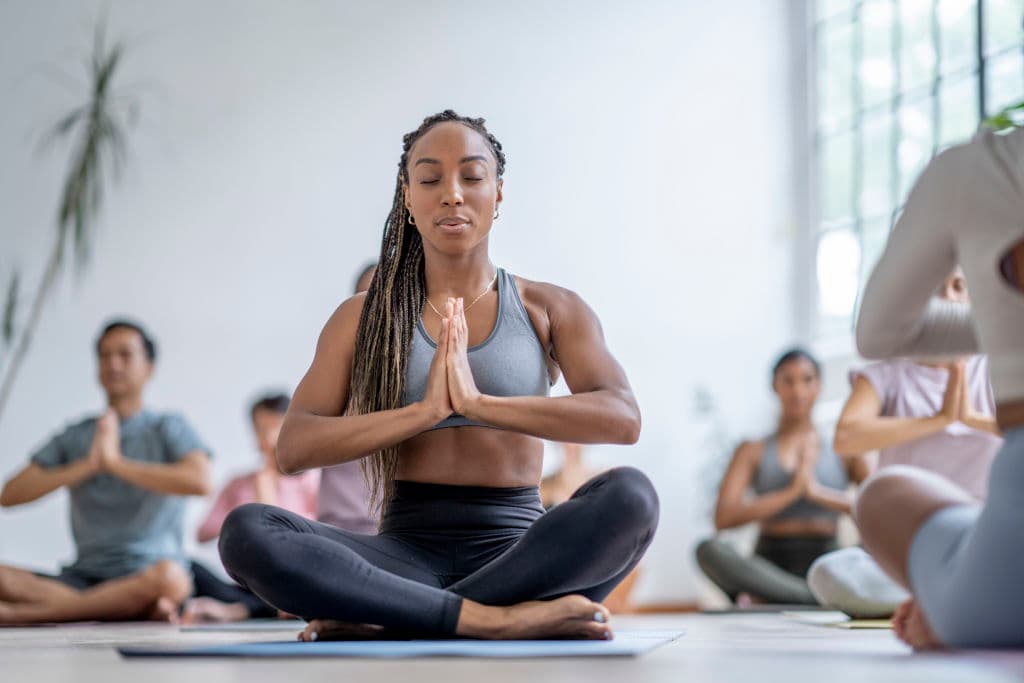
Workplace wellness offerings drive retention push
Sleep pods in the office, meditation rooms, yoga studios, fertility advice, infrared saunas, ice baths, vending machines packed with healthy foods and vertical gardens of micro-salads growing fresh against walls …
Office life has come a long way since the best work wellbeing boost you could possibly hope for was a 15-minute shoulder massage at your desk, and a Friday afternoon doughnut.
“We recently conducted a survey of our tenants in our commercial assets, asking them how important wellness spaces and wellness initiatives in their building are,” says Lisa Mhaya, director workplace at agency Knight Frank. “A total of 93 per cent said, ‘Very important’. That’s definitely much higher than they’ve ever been rated before.”
We’ve entered a new era, she says, when offices must be filled with natural light and air, there are green spaces close by and quiet areas to which workers can retreat.
Many also have yoga studios either attached or somewhere within the building, and the chips and chocolate in vending machines have often been replaced with healthy snacks.

Another new trend is growing edible live micro-salads in offices, instead of simply-nice-to-look-at green plants.
Peter Fox, the chief executive of vertical farming business Greenspace.com, has set up a series of small community-based hydroponic farms in the Sydney and Melbourne CBDs – and soon in Brisbane – which supply the micro-farms he’s installed in many offices.
“Companies are using them as a way to attract people back to their offices,” says Fox, whose clients include the CBA and ANZ banks, Deloitte Australia and a number of big hotels.
“It’s sort of the new generation end-of-trip wellbeing feature. It means people always have fresh green salad leaves available for their lunches, as well as micro herbs and edible flowers, and they can also take some food home with them.”
One business that’s gone full-bore into wellness is Melbourne muesli and health bar-maker Carman’s Kitchen.
It completely refitted a former chocolate factory in Huntingdale in Melbourne’s south-east to include a yoga room, a meditation room, a fully equipped gym with personal trainers, an on-site chef, heavily subsidised healthy meals, massage chairs and sleep pods.

“It’s how we can attract people who want to have a balanced life and then look after them and retain staff,” says chief of staff Lainie Tayler. “In turn, they all do amazing work and we consistently get great customer engagement results. It’s a really worthwhile investment for us.”
Many other companies have been visiting Carman’s offices and examining how its wellness features result in a staff retention rate that, some years, is as high as 96 per cent, with a very low staff turnover rate of just 3.2 per cent.
“And, often, when people do leave us, they end up coming back again,” Tayler adds.
With wellness real estate estimated to have been worth $US134 billion in 2017 by the Global Wellness Institute, that kind of attention has other benefits.
Tim Spencer, head of developments at Mulpha, recently finished The Bond in Sydney’s Norwest. It’s a health and medical facility that is built from engineered timber and aims to enhance the health and wellbeing of its occupants.
“One of our core tenets is wellness but we’re not doing that solely out of the goodness of our hearts,” Spencer says.
“We’ve found developments that incorporate wellness as a priority tend to attract a more progressive occupier, and ones who are willing to pay more for that privilege.
“It kind of ties in with the flight to quality. Historically, the bottom line was all about money, but now it’s not.
“With so much commercial space now available, and some so cheap to rent, you’ve got to add value and compete on that instead.”
Meanwhile, Melbourne developer Projects by Crema is nearing completion of The Eighth, an 18-storey mixed-use project in South Melbourne that has an entire floor dedicated to physical wellness – EQ Melbourne – with access available to commercial tenants, residents and members.
Managing director Nicolas Crema says the building was designed with wellbeing and community at its core.
“It’s been tremendous to see forward-thinking businesses buying into the building, acknowledging that a conducive environment can positively influence employee satisfaction, performance and, ultimately, business success,” he says.
Nimbus Co, a supplier of wellness equipment and personnel, has never been busier. The firm installs infrared saunas, ice baths and sound baths, and provides professionals to talk about nutrition, naturopathy, provide fertility advice and run meditation and Pilates workshops.
“Wellbeing has rocketed to the number one priority for offices,” says Nimbus chief executive Neil O’Sullivan.
“Five years ago, wellbeing was something you did at weekends. Now, people are demanding it in the workplace as they’re there often eight hours a day, and they realise how important it is to make them feel happy and perform better.”










